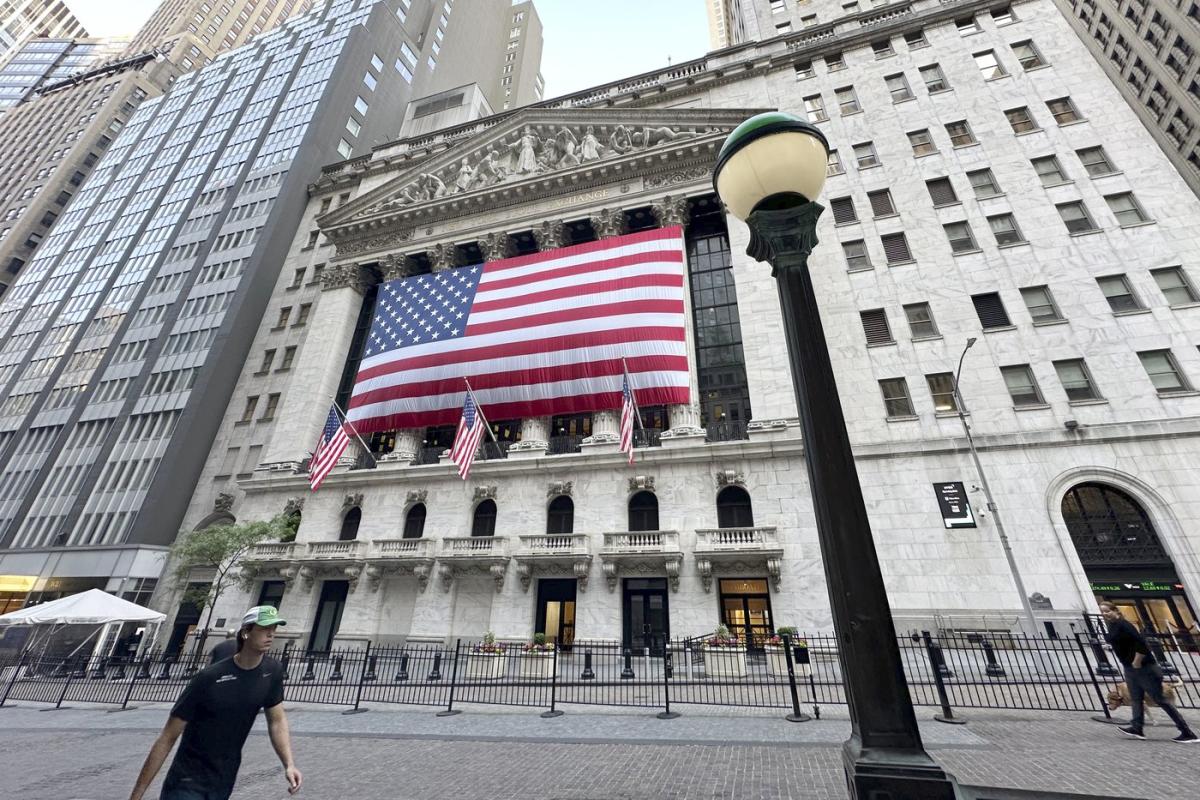Sports
Stock market today: Most of Wall Street slips in quiet trading after returning from a 3-day weekend

NEW YORK (AP) — Most U.S. stocks fell in a quiet day of trading Tuesday after a tick higher in bond yields tightened the screws a bit on Wall Street.
Nearly three out of every four stocks fell within the S&P 500. But strength for a handful of highly influential Big Tech stocks nevertheless helped the index hold up overall. It edged higher by 1.32, or less than 0.1%, to 5,306.04.
The Dow Jones Industrial Average fell 216.73 points, or 0.6%, to 38,852.86. The Nasdaq composite rode the strength of tech stocks to rise 99.09 points, or 0.6%, to 17,019.88 and added to its latest all-time high set on Friday.
Nvidia led the way and jumped 7% to bring its gain for the year so far to a whopping 130%. It’s still riding a wave created by its latest blowout profit report from last week, which calmed some of the worries that Wall Street’s frenzy around artificial-intelligence technology has inflated expectations and prices beyond reasonable levels.
U.S. Cellular climbed 12.2% after T-Mobile said it will buy nearly all of the company. The deal is valued at $4.4 billion and includes up to $2 billion in assumed debt. Shares of T-Mobile US added 0.8%.
GameStop jumped 25.2% after it said it raised $933.4 million in cash through a previously announced sale of stock. The company, whose stock price has often moved more on investors’ enthusiasm than any change to its profit prospects, said it could use the cash for acquisitions, investments or other general corporate purposes.
They helped offset drops for health care stocks, which had some of Wall Street’s sharpest losses. Moderna fell 8%, Merck dropped 2.6% and Vertex Pharmaceuticals sank 2.2%.
The majority of other stocks on Wall Street also fell, feeling the effects of a modest rise in Treasury yields. Higher yields can help make payments for everything from mortgages to credit cards more expensive, and they tend to put downward pressure on the economy.
The yield on the 10-year Treasury climbed to 4.54% from 4.47% late Friday. It had been lower in the morning but began trimming its losses after a surprising report showed confidence among U.S. consumers is strengthening. Economists had been expecting it to show a drop in confidence.
Strong spending by U.S. consumers has been one of the main reasons the economy has managed to defy predictions of a recession, at least so far, but some cracks have begun to show. Lower-income households in particular have begun to buckle under the pressure of still-high inflation.
Analysts at Bank of America cut their price target for McDonald’s on Tuesday citing its struggles after hiking its prices more than Wendy’s and other competitors, among other challenges. McDonald’s fell 1.8%.
Yields climbed further Tuesday afternoon following the auction of Treasurys by the U.S. government. The day’s gains cut into the recent easing of Treasury yields, which fell most of this month on hopes that a resumption in the cooldown for inflation will allow the Federal Reserve to cut its main interest rates at least once later this year.
The Fed has been holding the federal funds rate at the highest level in more than two decades in hopes of grinding down on the economy and investment prices enough to get high inflation fully under control. The danger is that if it leaves rates too high for too long, it could kneecap the job market and overall economy. Making it more difficult for the Fed, a premature cut to interest rates could allow inflation to reaccelerate and inflict even more pain on U.S. households.
This upcoming week has several reports that could sway the Fed’s thinking, beyond Tuesday’s on confidence among consumers.
The week’s highlight likely arrives on Friday when the government releases its latest monthly report on spending by households and the incomes that they earned. It will also include the measure of inflation for April that the Federal Reserve prefers to use.
In stock markets abroad, indexes fell modestly across much of Europe and Asia. London’s FTSE 100 slipped 0.8%, and Tokyo’s Nikkei 225 edged down by 0.1%.
___
AP Business Writers Matt Ott and Elaine Kurtenbach contributed.
Stan Choe, The Associated Press





